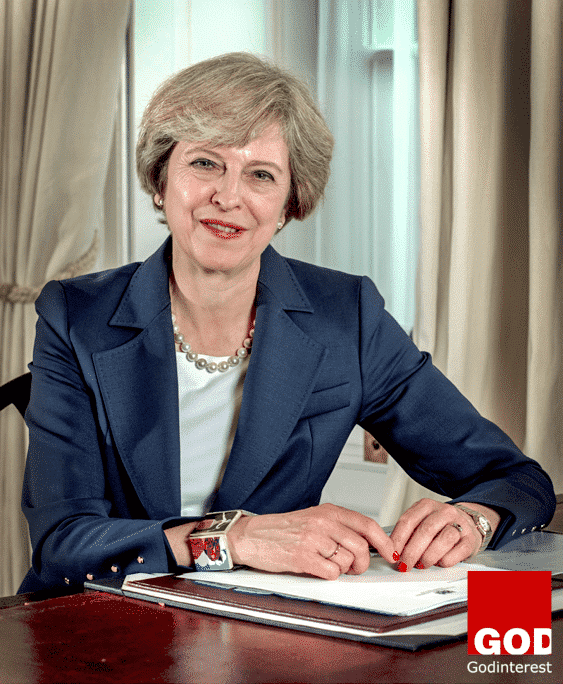The Prime Minister referred in her UK Christmas message to taking pride in Britain’s Christian heritage – in which some considered a bold statement for a politician in an increasingly secular and politically correct society in which Christianity is tolerated less in favour of other faiths. However, Teresa has previously said there is “no way” Christianity will be marginalised in the UK while she is Prime Minister.
“In the face of unspeakable suffering, Christian faith has provided solace where no other source of comfort could.”
The UK prime minister paid tribute to the Churches Together initiative, an ecumenical organisation that brings together the vast majority of Christian denominations in Britain and to the armed forces and emergency services. Mrs May mentioned that the response to terror attacks in Manchester and London earlier this year, and to the Grenfell Tower disaster, “inspired the nation” and acknowledged that the action of the emergency services “saves lives every day, including on Christmas Day.”
Mrs May, whose father was an Anglican vicar and who is a regular churchgoer, has already spoken of the influence of her Christian faith on multiple occasions, saying in an interview earlier this year that it “guides me in everything I do”.
“Theresa May was voted the Conservative party leader most like Jesus in a poll carried out by Christian radio station Premier.”
In her Christmas message Mrs May added:
“As we celebrate the birth of Christ, let us celebrate all those selfless acts – and countless others – that epitomise the values we share: Christian values of love, service and compassion that are lived out every day in our country by people of all faiths and none.”
“Let us take pride in our Christian heritage and the confidence it gives us to ensure that in Britain you can practice your faith free from question or fear.”
She also added: “Let us remember those around the world today who have been denied those freedoms – from Christians in some parts of the Middle East to the sickening persecution of the Rohingya Muslims.”
And let us reaffirm our determination to stand up for the freedom of people of all religions to speak about and practice of their beliefs in peace and safety.”
Unlike last year, May made no mention of Brexit in the Christmas message.
In contrast, Labour leader Jeremy Corbyn’s Christmas message made no mention of Christianity or any other religion, but instead emphasised a message of ‘compassion’. Not surprising as Jeremy Corbyn’s has previously refused to discuss whether he holds any religious beliefs, probably in fear of losing votes.
In recent years the Church of England has reported relatively steady Christmas attendance figures of around 2.5 million across the country – more than three times the average total Sunday congregation. But for the vast majority, the festival has become purely secular.
Recent surveys suggest that persecution of Christians in the past few years has, on a global level, reached unprecedented levels. For Christians in the UK there is a sense of being a target: sometimes for aggression, but primarily for ridicule or simply bemusement by non-believers. Therefore, Theresa May’s words of encouragement are not only timely and most welcomed, but also come at the end of a year where the British government has proposed radical social policies that have caused major concern throughout the Christian community in England.
“May’s message in one of encouragement to practice Christianity ‘free from question or fear.”
Teresa’s message also directly follows the treasurer, Scott Morrison, message in which he recently vowed to stand up to “mockery” and jokes about Christians.
We have seen this so often from Christians facing disciplinary action at work for sharing their faith and wearing crosses to businesses being sued and forced to close for refusing to serve openly gay people, to nativity plays being banned in schools for fear of offending other religions. Christians in the UK also raised concern over their freedoms to live out their faith with Lord Pearson leading the way suggesting that it would soon become a hate crime to proclaim Christianity.
Numerous street preachers have also been arrested throughout the year – yet all (eventually) had charges dropped against them.
“The paradox of a secular Christmas, perhaps, is that it is no less Christian for that.”
“Every year, the straws in the wind seem to come a little harder. Plummeting church attendance; ignorance of the most basic details of the Bible; advent calendars filled with chocolates or sex toys rather than illustrations of the nativity.” a nation newspaper reported.
However, the Church has nothing to worry about for if we ask, if we seek and when we knock, God will answer, we will find and God will open the door.
Secularists may take pride in having transcended the religious identities that prevail elsewhere — but they are no less Christendom’s heirs for that.
The paradox of a secular Christmas, perhaps, is that it is no less Christian for that as our secular society continues to draws from the well of Christian tradition that is embedded in the frantic of British society.
Have a wonderful Christmas and New Year.




